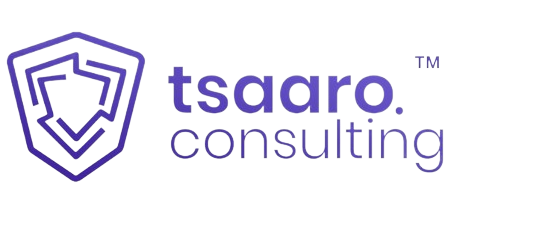Third-Party Risk Management
The General Data Protection Regulation (GDPR) is a law that affects any business or organization that handles the personal data of people, whether they are based inside or outside of Europe. Though It’s essential to comply with this law, but it can be challenging for organizations. However, complying with the GDPR is also an opportunity to show your commitment to protecting people’s personal information.

What is Third-Party Risk Management?
Many businesses contract out various operations to other parties based on their capability. One or more of these third parties might be a supplier, a vendor, a subcontractor, a contract manufacturer, a reseller, a distributor, a partner, a captive, or an affiliate. Examining the vendor risk presented by a company’s third-party contacts with service providers, vendors, suppliers and supply chain is the focus of a third party-risk assessment. It is an essential component of the bigger set of third-party risk management techniques.


Why does your organization need Third-Party risk Management?
What impact does third-party risk assessment have on your business?
- It offers you command over a system that allows you to frequently monitor numerous parties and hazards involved.
- It influences the extent of your evaluation while improving your capacity to anticipate and evaluate both internal and external threats associated with third-party.
- It assists you in gathering and performing a macro-analysis of reliable data on risks concerning third-party in various evaluations which will improve any future vendor selections made by the company.
- It gives you the capacity to examine the effectiveness of the risk assessment parameters which identifies the caliber and dependability of your data.

Benefits of Third-Party Risk Management
- Improved Security: Third-party risk assessments help to identify and mitigate potential security vulnerabilities in an organization’s supply chain. By evaluating the security posture of third-party vendors, organizations can reduce the risk of data breaches, cyber-attacks, and other security incidents.
- Enhanced Compliance: Many industries and regulatory bodies require organizations to assess the risk posed by third-party vendors. Conducting regular third-party risk assessments can help organizations comply with these requirements and avoid costly penalties.
- Better Business Decisions: Third-party risk assessments can provide valuable insights into the financial health and operational stability of third-party vendors. This information can help organizations make better-informed business decisions and reduce the risk of partnering with unreliable or financially unstable vendors.
- Protection of Reputation: The reputation of an organization can be severely damaged by a data breach or security incident caused by a third-party vendor. Regular third-party risk assessments can help identify and address potential risks before they result in a breach, protecting the organization’s reputation and brand image.
- Cost Savings: Third-party risk assessments can identify inefficiencies in the supply chain and help organizations negotiate better vendor contracts. Additionally, by identifying and addressing potential security incidents before they occur, organizations can avoid the high costs associated with responding to a data breach or other security incident.
How can Tsaaro assist you
Third Party Risk Assessment can give companies a competitive advantage by demonstrating a commitment to privacy and differentiating their product or service from competitors who do not prioritize fixing these loopholes.
This process can help to avoid privacy breaches and data leaks, which can damage a company's reputation and lead to financial losses.
Third Party Risk Assessment can lead to the development of more secure and reliable products and services, which can improve the overall quality of the product and user experience.
It can help to anticipate and address potential privacy concerns and future regulatory requirements, which can ensure the longevity and sustainability of the product or service.
Third Party Risk Assessment can give companies a competitive advantage by demonstrating a commitment to privacy and differentiating their product or service from competitors who do not prioritize fixing these loopholes.
This process can help to avoid privacy breaches and data leaks, which can damage a company's reputation and lead to financial losses.
Third Party Risk Assessment can lead to the development of more secure and reliable products and services, which can improve the overall quality of the product and user experience.
It can help to anticipate and address potential privacy concerns and future regulatory requirements, which can ensure the longevity and sustainability of the product or service.




